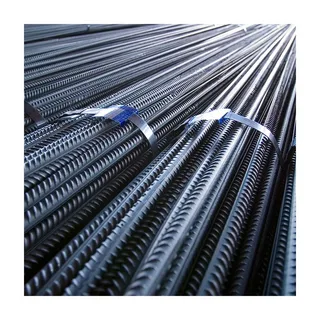What to Consider When Choosing a Reinforcing Supplier in Sydney?
Finding a reinforcing supplier in Sydney is a vital decision in the construction process. Whether for residential builds, commercial developments, or infrastructure projects, the reinforcement of concrete structures plays a key role in long-term strength and stability. A trusted supplier will not only provide compliant materials but also support scheduling, logistics, and custom fabrication.
This article explores essential factors that builders, engineers, and project managers should consider when selecting a reinforcement partner in Sydney.
What Types of Reinforcement Materials Are Required?
Reinforcing Bar (Rebar)
Suppliers should offer a full range of steel rebar in different diameters and grades, suitable for foundations, beams, slabs, and columns. Quality rebar must meet national safety and performance standards.Reinforcing Mesh
Commonly used in flooring and slabs, mesh reinforcement must be accurately sized and consistently manufactured. Mesh sheets come in various configurations and should suit structural load demands.Prefabricated Cages and Columns
Some suppliers offer custom fabrication services for prefabricated cages, reducing onsite labour. These products are particularly useful for piers and deep foundation work.
How Important Is Compliance with Australian Standards?
Standard Compliance Documentation
All reinforcement materials must conform to Australian Standards (such as AS/NZS 4671 for steel). Reputable suppliers provide clear documentation to demonstrate product certification.Traceability of Products
Traceability tags or batch numbers should be provided for each product. This ensures materials can be tracked in case of audits or future structural assessments.Consistent Quality Control
High standards of in-house testing and quality assurance processes help ensure every batch meets structural performance requirements.
How Can Supplier Capabilities Affect Project Timelines?
Efficient Fabrication Processes
A supplier with the capacity to cut and bend steel according to detailed plans helps streamline construction. This minimises delays and allows for more accurate onsite assembly.Reliable Scheduling and Delivery
Reliable delivery windows and accurate lead times support project planning. A supplier’s ability to adapt to timeline changes is critical on busy sites.Stock Availability
Having key materials available when needed prevents downtime. Suppliers with large inventories are more likely to meet urgent or unexpected demands.
What Are the Logistics and Delivery Considerations?
Geographic Reach
A supplier’s proximity to central or outer Sydney suburbs can impact delivery speed. Suppliers should be able to deliver efficiently across the metropolitan area and to regional sites if required.Delivery Equipment
Trucks with lifting equipment (like cranes or HIABs) make it easier to unload reinforcement on-site, especially for heavy or awkward items.Staging and Sequencing
Suppliers that can coordinate staged deliveries support the construction sequence. This helps reduce clutter and ensures materials arrive as needed.
What Level of Technical Support Should Be Expected?
Drawing and Detailing Services
Some suppliers assist with technical drawings and bar schedules. This helps ensure accurate fabrication and avoids on-site errors.Advisory Support
A knowledgeable supplier can answer design or installation queries and provide advice on optimal reinforcement methods.On-Site Coordination
In larger or more complex projects, technical staff may liaise with site supervisors to align delivery and placement processes.
How to Assess the Supplier’s Industry Experience?
Track Record in Similar Projects
Suppliers with experience in similar scale or complexity projects are more likely to anticipate challenges and provide practical solutions.Familiarity with Regulations
Experienced suppliers are well-versed in both national standards and regional council requirements. This helps ensure smooth approvals and inspections.Established Reputation
A supplier’s industry longevity and customer feedback can offer insight into reliability, consistency, and professionalism.
Conclusion
Choosing the right reinforcing supplier in sydney involves evaluating more than just product range. It includes checking for compliance, service capabilities, delivery logistics, and technical expertise. A dependable partner will offer more than reinforcement materials—they contribute to the strength and efficiency of the entire build. With careful consideration, project leaders can ensure reinforcement supply remains aligned with quality standards and construction timelines.


Comments
Post a Comment